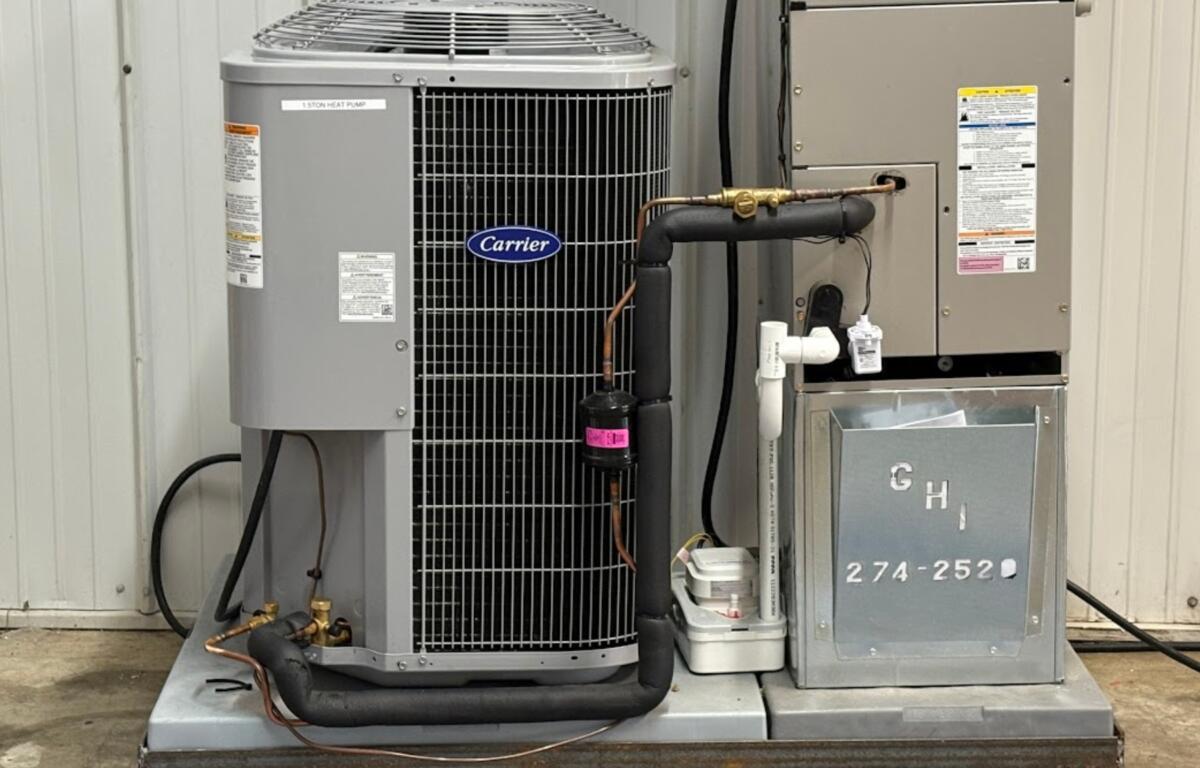SWANNANOA, N.C. (828newsNOW) — A musty or funky odor from your HVAC system often indicates mold or mildew, typically caused by excess moisture inside the unit.
Gentry Service Group HVAC service techs Matt Torres and Cameron Clark have some tips for homeowners to keep drainlines clean and unclogged between service calls.
Routine maintenance is critical to ensuring HVAC systems operate at peak performance, maintain energy efficiency and preserve indoor air quality and safety, according to HVAC professionals.
Heating, ventilation and air conditioning systems are complex assemblies of parts that are subject to wear through regular use. Experts recommend biannual inspections to identify and resolve potential issues early, which can extend the life of the system.
Scheduled maintenance allows technicians to take a close look at your system and catch problems before they lead to expensive repairs or system failures, Gentry techs said.
While professional service is essential, homeowners can take steps between visits to improve performance and reduce the risk of breakdowns. One of the most common causes of summer HVAC failures is a clogged condensate drain.
To help prevent clogs, technicians advise homeowners to treat the drain line monthly during the cooling season with half a cup of white vinegar. This helps prevent algae buildup and keeps the line clear until the next scheduled maintenance.
Homeowners should never use bleach to clean HVAC drains, as it can damage the system and worsen clogs. If a system is not equipped with a drain line cleanout, owners are encouraged to contact a technician to have one installed.
Torres and Clark said one of the most misunderstood features of the HVAC system — the defrost cycle — is the cause of many of the calls to Gentry during winter months.
“To help you better understand what this sounds and looks like, I’m going to force the system into the defrost mode,” Torres said.
Once activated, the fan blade stopped spinning, a normal part of the process. Under certain outdoor conditions, steam may become visible during the cycle. This is often mistaken for smoke but is actually a typical part of the operation, Clark explained.
“You may also feel some heat and hear a humming sound during this cycle,” he said. “That’s the system running normally.”
After the cycle ends, the unit resumes standard heating operation.
During regular use, light frost buildup on the unit is normal. However, if ice accumulates beyond a few millimeters in thickness, it may signal a malfunction.
“We encourage you to call us if you notice any excessive ice buildup,” Clark said. “We are here to help.”


